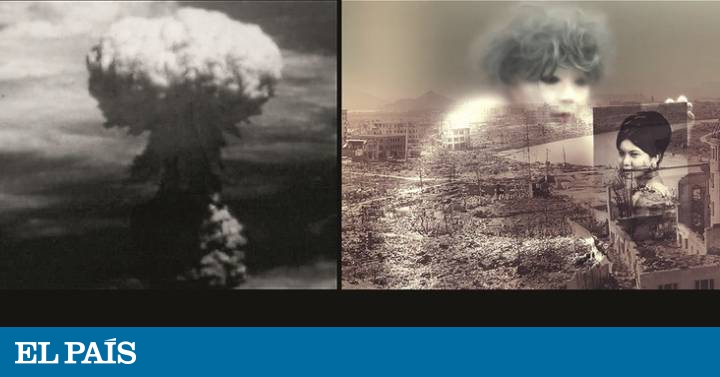Rithy Panh (Nom Pen, 55 years old) has assumed that her life will always be linked to human barbarism, the unreasonableness that leads men to kill each other, and the more, the better. He has been living in exile in Paris for 15 years, after fleeing the Khmer Rouge, the dictatorship of terror that ended with one in three inhabitants of his native country, Cambodia. He began filming in 1989, although until 2003 with S-21, the Khmer Rouge killing machine did not achieve international relevance. In The Lost Image - Oscar nominee for best foreign-speaking film in 2013 - he used clay craft dolls and archival images to show the atrocities, his book The Elimination (Anagram) honored the victims and two years ago Exil premiered, in which he delved poetically in his own pain, and La France est Notre Patrie, documentary with historical images filmed by the French during the colonial era. All that is, and much more, is in Irradiés, the film that has closed the competition at the Berlinale, the only documentary to contest.
MORE INFORMATION
The filmmaker of historical memory
The Nazi who tried to tell his life in Hollywood
Irradiés is another step in Panh's career. Because he leaves Cambodia to talk about extermination anywhere in the twentieth century. Because it assumes a formally more elaborate cinematographic language to immerse the viewer in the pain that the human being himself has inflicted in the twentieth century. "When we had about 15 minutes of film, I realized that it was impossible to see it," he told the press. "We had to put the cinema in the movie, go to the sensations that an artistic installation causes us." In Irradiés the screen is split into three, while listening to a poetic-essay dialogue between a man and a woman on account of death, extermination, suffering. There are images that occupy the entire screen, there are others that go at different speeds, others that repeat, others that combine ... Also thumbnails and ghosts filmed for the occasion.
For Rithy Panh, "the film is both a cry of hope and a cry of evil, because in the twentieth century we have been constantly repeating the same mistakes." And it has changed his way of narrating. "In my previous films there was not much talk, it was heard. Now a powerful soundtrack sounds, the cinema shows its poetic facet to counteract the horror of what was told ... Many times things happen very fast, and I instead wanted a immersion, a narrative. As death and destruction fascinate us, I decided that there was breathing through the film. The repetition of images reminds us that there are several perspectives, something that we lose with the current speed, "he says.
There are not only archive images, but also fragments of other works on the human condition. As a couple of sequences of Chronicle of a Summer (1961), documentary example of cinéma vérité by Edgar Morin and Jean Rouch. "The cinema has a responsibility: to tell the things that happen to us, the painful ones, and I take the opportunity to warn of the growth of current totalitarianism. How have we passed from Roosevelt to Trump? I chose the images that resonated inside me, not a mere catalog of bombs and bodies. " With the term Irradi, it refers to those irradiated by atomic bombs, and by extension to every survivor who burns something inside and destroys him, even a generation after the events. "I want to try to achieve something close to the artistic creations made from freedom by directors like Alain Resnais," he says. "That with the relocation of the images we create a polyphony." Irradiés is very hard, as much as indispensable.
Rithy Panh closes today the Competition section of the Berlinale with There Is No Evil, by Iranian Mohammed Rasoulof. The director of The Island of Iron and An Entire Man has shot four stories related to the death penalty and moral integrity with a very uneven result. They are all united by the theme and the final reflection on the lack of decision-making capacity that human beings have left. Unfortunately, Rasoulof is not given opportunities either: the Iranian government has banned him from leaving his country.
With this closure, the new directors of the Berlinale have been left with a pretty busy contest, superior in quality to those of previous editions. The jury should choose between two works like First Cow, by Kelly Reichardt, and Never Rarely Sometimes Always, by Eliza Hittman, of the best of the current independent American cinema, or play it at riskier bets and typical of a festival, like Rizi, superb approach to loneliness that he does with no more than 20 planes - and without subtitled dialogues, because the filmmaker says they don't matter - from Malay Tsai Ming-Liang, or The Woman Who Ran, from Korean Hong Sangsoo, idolized by European critics . Irradiés or the work of the Italian Elio Germano in Volevo Nascondermi, by Giorgio Diritti, should also enter that record. What will happen with DAU. Natasha, the movie that more dust has raised in the Berlinale? Its director, the Russian, Ilya Khrzhanovskiy, has since 2006 raised a multidisciplinary project, which has already had an exhibition at the Pompidou, which he filmed for three years, and rebuilds a secret research institute that worked in the USSR from 1938 to 1968. Khrzhanovskiy has told in Berlin that there will be at least six more films to complete a puzzle, which he started in the Berlinale with the 145 minutes of DAU. Natasha , in Competition, and the 355 minutes of DAU. Degeneration, present in the Special section.

